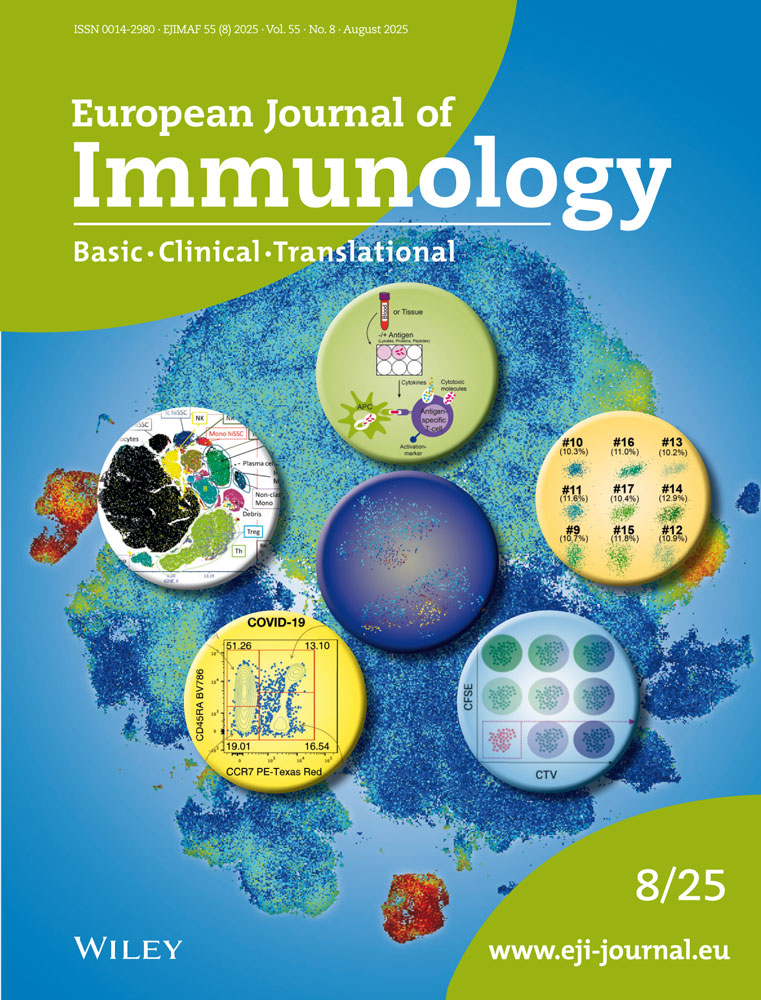The role of immunoglobulin receptors in “cognate” T-B cell collaboration
Abstract
The functional effects of anti-Ig antibodies have been investigated, using an experimental system where B cell activation is brought about by direct and specific interactions with T helper (Th) cells without participation of surface Ig releptors on the responding B cell. We have used Th cell lines and clones directed to class II major histocompatibility complex antigens of the responding B cells, and titrated into cooperative cultures either purified rabbit anti-mouse μ, or monoclonal mouse anti-δ antibodies. Both types of antibodies greatly enhanced B lymphocyte responses to suboptimal concentrations of functionally efficient Th cells, while they had no effect in cultures containing optimal Th: B cell ratios. In contrast, helper activity by low efficiency Th was, at all Th: B cell ratios, enhanced by appropriate concentrations of anti-Ig antibodies. Anti-Ig effects were exclusively observed when B cells were the targets for “cognate” recognition by Th cells. We conclude that ligand binding to surface Ig receptors on resting B cells fails, in our experimental conditions, to overcome “linked” collaboration, but it greatly facilitates productive Th−B cell interactions. Whatever the mechanisms underlying this facilitation, the observations imply roles of surface Ig in Th−dependent B lymphocyte activation other than either passive “focusing” of antigen or activation into reactivity to soluble, unspecific factors.




